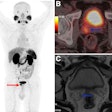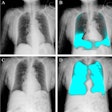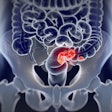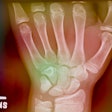Dear AuntMinnie Member,
It's pretty rare to read a positive perspective on medical imaging in JAMA Internal Medicine. So it's no surprise that the journal this past week published a pair of articles that purported to generate "debate" over the value of coronary CT angiography and coronary artery calcium scoring.
The first article was authored by an internal medicine physician from Utah, and it claimed that coronary CT scans are unproven tools that can lead to unnecessary future testing and radiation exposure. This was countered by an opinion from an Illinois cardiologist, who pointed out holes in the argument and underscored his opinion that the modality is valuable for cardiac imaging.
Our coverage of the exchange was the top story on AuntMinnie.com this past week -- visit our CT Community to read more.
In other CT news, researchers from Yale University discussed their use of CT to evaluate kidney stones with a protocol that sharply reduces radiation dose. And a group from the Mayo Clinic in Rochester, MN, recently discussed their work on a deep-learning algorithm that performs automated segmentation of the pancreas on CT exams.
Get these stories and more in our CT Community.
Predicting patient no-shows
One of the most annoying things about running an imaging operation is when patients don't show up for their appointments. What if there was a magic tool that would predict which patients are more likely to flake out?
Fortunately, such a tool exists, and it's not magic. Researchers from the University of Maryland recently demonstrated their work on a machine-learning algorithm trained on the outcomes of over 4 million CT and MRI exams that can be used to predict whether patients will not show up -- or will show up late -- for their exams.
In other news in our Artificial Intelligence Community, learn about an algorithm for classifying lesions on breast MRI exams and a tool for analyzing 3D SPECT studies of patients suspected of having Parkinson's disease.
COVID virus in spinal fluid
As we've learned over the past year, the clinical repercussions of COVID-19 disease extend far beyond the lungs. In fact, a new study out of New York City has linked the appearance of hyperintense lesions in the brain on MRI exams with the presence of the SARS-CoV-2 virus in the spinal fluid.
In other MRI news, South Korean researchers found that supplemental MRI can be a good tool for detecting interval cancers in women with a personal history of breast cancer.
Finally, as we go to press, the Society of Nuclear Medicine and Molecular Imaging meeting is just starting to ramp up. Be sure to check back in our Molecular Imaging Community for coverage of the show.



















